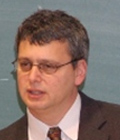Speakers and conference papers

Introduction
Professor Lee is a scholar and lawyer in international economic law and law and development. He is Director of the Law and Development Institute and Visiting Professor of Law, Tulane University (2014-2015). He has also taught and conducted academic research at leading universities throughout the United States, Europe, and Asia. He graduated in economics with academic distinction from the University of California at Berkeley and received law degrees from the University of Cambridge (B.A., M.A., Ph.D). Author of Reclaiming Development in the World Trading System (Cambridge University Press, 2006, reprint 2009), Safeguard Measures in World Trade: The Legal Analysis (Edward Elgar, 3rd ed. 2014), and Law and Development Perspective on International Trade Law (co-authored, Cambridge University Press, 2011), Professor Lee has published over sixty scholarly articles, book volumes, chapters and shorter notes with leading publishers in North America, Europe, and Asia, in the areas of international economic law, law and development, comparative law, and international commercial arbitration. He has pioneered academic research on safeguard measures (emergency import restraint measures) under the World Trade Organization (WTO) system and developed the concept of “microtrade”, a new system of international trade designed to alleviate populations of the least-developed countries of extreme poverty. His work has focused on the impacts that domestic and international legal systems, particularly the legal framework for international trade, have on economic development. He is currently an associate editor of the Journal of World Trade and the founding editor-in-chief of the Law and Development Review. Professor Lee has participated in a number of bilateral and multilateral negotiations on international trade and investment at international forums such as the United Nations Commission on International Trade Law. He has appeared before WTO dispute settlement panels and the WTO Appellate Body as a government counsel, and advised national governments, international law firms, and consulting companies on international trade and development projects and major international commercial arbitration cases. He has frequently spoken on issues of international economic law, law and development, and the WTO at prominent forums including Harvard University Kennedy School of Government and the Johns Hopkins University School of Advanced International Studies.
Presentation Title: Rule of Law and Development
Rule of law” has been cited as an important component for successful economic and social development. Rule of law is also advocated as an objective, not just as a means for development. This presentation analyzes the necessary conditions under which rule of law initiatives may make contributions to development, with references to the law and development movements in the past. The necessity and feasibility of a new analytical framework for law and development is also examined.

Introduction
Mariana Mota Prado obtained her law degree (LLB) from the University of Sao Paulo (2000), and her master’s (LLM) and Doctorate from Yale Law School (2002 and 2008). She is currently an Associate Professor at the Faculty of Law, University of Toronto. Prior to joining the University of Toronto in 2006, she worked for the Private Participation in Infrastructure Database Project at the World Bank (2004), and was a fellow of the Olin Center for Law, Economics and Public Policy at Yale Law School (2005). During the 2012-2013 academic year she was a visiting researcher at MIT’s Political Science Department. A Brazilian national, she regularly teaches intensive courses at Getulio Vargas Foundation in Rio de Janeiro, and collaborates with Brazilian scholars on projects related to institutional reforms in Brazil. Her scholarship focuses on law and development, regulated industries, and comparative law.
Presentation Title: Institutional Bypasses in Brazil – Overcoming Ex-Ante Resistance to Institutional Reforms
After decades of heated debate and much controversy, recently development scholars have been converging towards a possible consensual explanation to the question of poverty: institutions. While there are many obstacles to reforming dysfunctional institutions, one of the central challenges is resistance to reforms. In a previous paper, I have explored whether one particular type of institutional reform may help policymakers deal with resistance. I call this type of reform an “institutional bypass”. Instead of trying to fix dysfunctional institutions, an institutional bypass simply creates a parallel institution that performs exactly the same function of the original institution and competes with it. The purpose of this presentation is to investigate the conditions under which an institutional bypass is likely to help reformers overcome initial resistance to reforms. It will be focused on ex-ante resistance, i.e. resistance that may block a reform from being adopted. The analysis of ex-ante resistance is based on three case studies from Brazil: a bureaucratic reform in the state of Sao Paulo in the 1990s (Poupatempo); a police reform in Rio de Janeiro in the 2000s (Unidade de Polícia Pacificadora, UPPs); and the ongoing use of private security forces by citizens in general.

Introduction
Soo Hee Lee is Professor in Organisation Studies and Head of People, Managemet and Organisation Group at Kent Business School, University of Kent, and an adjunct professor at the Graduate School of Culture Technology, KAIST. He has previously taught at Birkbeck College (University of London), University of Sheffield and Cass Business School (City University). His research focuses on comparative institutions, innovation systems, digital remediation of arts and culture. He has published in journal such as Organization Studies, Journal of Management Studies, Research Policy, and Journal of International Business Studies.
Presentation Title: Entrepreneurship, Law and Development: Lessons from Weber and Bendix
Law and development literature portrays the impact of legal institutions on economic growth, tackling at the same time social issues, such as economic inequality. The works of Max Weber on Protestant Ethic and Sociology of Law imply that norms and legal authority shape an idiosyncratic economic context in each country. Reinhard Bendix, by comparing US and Russia, develops an argument that different socio-political trajectories influence the legal environment which determines the direction of entrepreneurial and business endeavours. During the second half of the previous century, the progressive reduction or elimination of trade tariffs paved the way to neoliberalism which opened new opportunities for firms to operate abroad in an interconnected and interdependent way. While the sovereign state or religion were the sources of authority which dominated legal rationality in the past, the decline of neoliberalism today urges us to revisit the ideas of Weber and Bendix in order to understand how legal rationality emerges in the context of developing countries. As law and development movement triggers legal reforms from developed to developing countries, institutional void in developing countries often balks developmental efforts. We will examine the case of China briefly in order to scrutinize how the legal environment influences the direction of entrepreneurship.

Introduction
Ding Chen is currently a lecturer in law at University of Newcastle. Before moving into academic life, she practised criminal law as a public prosecutor in Guangdong Province, China. She completed her Ph.D at the University of Manchester where she also did some part-time law teaching. In addition, she taught in the LLM programme of the China-Eu School of Law since 2010.
Presentation Title: Law and Finance in Emerging Market
The presentation is based on the ESRC project by Centre for Business Research, University of Cambridge. Using data of 25 countries on SPI (shareholder protection index) from 1995-2005, the presentation introduces time-series element into the analysis of law and financial development. The finding shows that there is formal but not functional convergence of company law systems and that transplanted laws do not always bed down well but there is a legal origin effect. That is, transplants work better within legal families and shareholder protection can be ‘too much of a good thing’ in the developed common law world. However, legally-driven shareholder protection may well have positive effects on financial development in the developing world, and empirical evidence supports the ‘sequencing’ hypothesis.

Introduction
Alessandro Romano is Ph.D. candidate in Law and Economics at Erasmus University (Rotterdam) and at LUISS “Guido Carli” University (Rome). He holds a two-year M.Sc. cum laude in Business and Administration and a Bachelor in Business Economics from Università di Napoli “Federico II”. He also holds the European. Master in Law and Economics. He was a Visiting Researcher at U.C. Berkeley for spring 2012.
Presentation Title: Piecemeal Legal Origin
The legal origin movement is implicitly functionalist, while it explicitly prioritizes economic dimensions of development. From this perspective, the empirical findings seem to uncover the existence of a paradox. On the one hand, common law countries are apparently characterized by countless advantages, yet they do not grow faster than civil law countries. On the other hand, common law countries present a more unequal distribution of income, thus suggesting that also from a static perspective there is no a priori reason to prefer a common law system. To further investigate this paradox, we analyze if common law countries are at least characterized by a better kind (earned) of inequalities. However, as the economic distinction between inequalities of opportunities and inequalities of effort is too fragile, this proves to be an impossible task. By exploring the centuries old debate between holists and reductionists, we suggest that paradoxes of this kind are bound to emerge until the dichotomy between micro comparative law (typical of legal scholars) and macro comparative law (favored by champions of legal origins theory) is abandoned. In this vein, we develop a specific framework to bridge the two levels of enquiry and to offer a new perspective on the legal origin theory.

Introduction
Ajay Kumar is an Associate Lecturer at the Manchester Metropolitan University and a PhD candidate at the University of Manchester. He is also qualified to practice law in India and England & Wales.
Presentation Title: Infusing Development into International Fiscal Law – SAARC a Test Case
Development is presently not an objective of International Fiscal Law; yet, most of the other arms of International Economic Law are informed and do promote development. This presentation explores the issues that have to be considered and the obstacles that have to be overcome to make this a reality. The most critical aspect here is to create practice, and this to be generated by inverting the top-down approach. Hence, the South Asian Association for Regional Cooperation (SAARC) is chosen to see whether a dominant regional economic power like India would be in a position to accede to the developmental needs of its regional treaty partners. These conclusions would add to the understanding for a normative acceptance of development globally.

Introduction
Lucy Johnson is a public interest advocate, human rights defender, writer and scholar. She read International Law, specialising in law and development, at Handong International Law School, South Korea and practiced in the area of Refugee Law with The Refugee Legal Centre before commencing further studies in comparative religion with the Open University.
Presentation Title: The Law and the Profits – Maintaining Civil Stability in the Era of Corporate Privilege
There is a strong correlation between unstable economies and unstable civil society. The global financial and sovereign debt crises and their aftermath is redefining relationship between the Citizen and the State. In both the developed and developing world, citizens are demanding greater accountability from their leaders and those who finance them, on one hand, and on the other, we see a greater rise of subtle forms of State Authoritarianism as civil instability and community tensions increase. This presentation explores how the international and internal legal frameworks for business and welfare provision act as triggers for civil instability, and how these legal frameworks could be adjusted to reduce the likelihood of civil unrest.
 Dr. Hye Seong Mun
Dr. Hye Seong Mun Professor Colin Picker
Professor Colin Picker Dr. Tomer Broude
Dr. Tomer Broude Professor Wang Jiangyu
Professor Wang Jiangyu Professor Won-Mog Choi
Professor Won-Mog Choi Dr. Andrew D Mitchell
Dr. Andrew D Mitchell Dr. Salim Farrar
Dr. Salim Farrar Professor Junji Nakagawa
Professor Junji Nakagawa Professor Maureen Irish
Professor Maureen Irish Professor David Gantz
Professor David Gantz Professor Moshe Hirsch
Professor Moshe Hirsch
 Professor Yong-Shik Lee
Professor Yong-Shik Lee